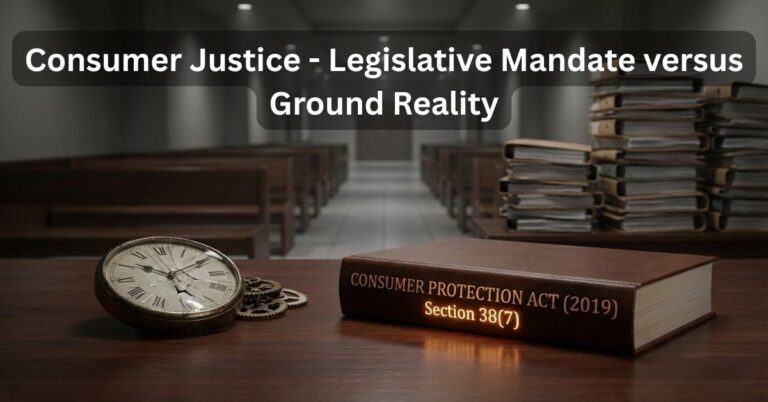The State of Goa is known for its scenic beauty and boasts about the fact that it is the only state in India that has civil laws which are applicable to all faiths ensuring uniformity and parity. Formerly, the civil rights of Goans were only protected by the provisions laid down in the Portuguese Civil Code, 1867; Portuguese Code of Civil Procedure, 1939 and the Family Laws Marriage, Divorce, Children, the Goa Code of Civil Registration, 1912. However, the Government of Goa felt a need to consolidate and amend the laws relating to intestate and testamentary succession, notarial law and other laws relating to partition of an inheritance, etc. and accordingly legislated a new Act known as ‘The Goa Succession, Special Notaries And Inventory Proceeding Act, 2012’ (“Act”).
Inheritance under the Act is vast and does not fall within the ambit of a straight jacket formula. The procedures related to the various aspects of inheritance would differ based on the facts and circumstances of every case.
This article touches upon an aspect of inheritance i.e. testamentary succession in the State of Goa and provides a basic understanding on the following:
- Order of Succession; and
- Proceedings for execution of the Will of the Deceased.
A. Succession
The Act terms Succession as a process by which deceased’s estate is transferred to the successor(s). It includes testamentary succession i.e when the deceased has left a Will and the same has to be executed and Intestate succession i.e. when the assets devolves upon the heir(s) in absence of a Will. In both cases, in order for the assets to devolve, and for the rights of every heir, legatee and/ or successor, to be determined, an inventory proceeding is instituted and the court is required to adhere to the order of succession as provided in the Act.
Order of Succession
Legal succession would devolve following order of priority being i) on the descendants, then i) (a) on the surviving spouse, then ii) on the ascendants subject to the provisions of sub section (2) of Section 72, then iii) on the brothers and sisters and their descendants, then iv) on the collaterals upto the sixth degree, and then v) on the State, provided that, in the absence of testamentary or intestate heir of a beneficial owner or of an emphyteusis, the property shall revert to the direct owner i.e, if a beneficial owner dies without leaving a Will or does not have any heirs, the property will revert back to the State.
B. Proceedings for the execution of Will of the Deceased.
Inventory Proceeding
An inventory proceeding is a proceeding to partition the inheritance of the deceased person or to obtain a formal order of inheritance by the Court. It is initiated for executing a Will or, in its absence, to determine the asset distribution. Inventory proceedings are classified into two which are the following:
- Mandatory Inventory
When the estate leaver leaves behind a spouse or heirs who are legally incapacitated, absent, unidentified, or minors, the division of assets will occur by instituting an inventory proceeding only.
- Optional Inventory
When the Interested parties (hereinafter defined) do not fall within the ambit of a mandatory inventory, they may opt for inventory proceedings to partition the inheritance.
Jurisdiction
The place of opening of the inheritance shall be established in the following manner:
- If the estate leaver was a permanent resident of Goa, succession would open in Goa;
- If the estate leaver is not a permanent resident of Goa then succession would open where the immovable property is situated in Goa considering the place where major part of these properties are located;
- If the estate leaver is governed by this Act and the immovable properties are partly situated in Goa and outside Goa, succession opens in Goa irrespective of the value of the property;
- If the person died outside the State of Goa, was not a permanent resident of Goa, nor did he/she own immovable properties in Goa but has movable property in Goa, succession opens where major part of the movable assets are located.
- If the deceased did not have permanent residence nor immovable properties in Goa, but died in Goa, succession opens at the place where he died.
Procedure for Inventory for execution of Will
An Inventory proceeding is instituted by the Interested party (hereinafter defined) in person or through a constituted attorney. “Interested Party” is the heir, moiety holder (spouse) of the deceased, executor in a Will where there is a minor, interdicted (person who is declared to be incompetent to manage his/her assets by the order of the court) or absent heirs or legatees and the person who have a the right to usufruct of a part of the inheritance without specifying its value or thing and also the executor.
Set out below is the procedure for instituting an inventory proceeding for the execution of a Will where the Interested Parties mutually consent to the same.
| Steps | Stage | Explanation |
| 1. | Filing of the Inventory Proceeding and appointment of Head of Family (Cabeca de Casal) | A petition is filed along with the death certificate of the estate leaver; self attested Aadhaar Cards and /or Pan Cards of the Petitioner and Interested Parties in order to substantiate the relationship with the estate leaver; marriage certificate of the deceased person along with the marriage certificate of the Interested Parties to the inventory proceeding; anda Will. If the death of the estate leaver is not registered, then the burial certificate is produced along with affidavits sworn by three witnesses on oath stating that they were present when the estate leaver died.Upon institution of such petition for inventory proceedings, the court shall appoint the eldest member of family to be the head of the family provided he/she has not attained the age of 70 years. However, if there are no other heirs, to represent the deceased then he/she can be appointed as head of family in assisting the court wherein he/she shall be bound to make declaration on oath pertaining to the death of the estate leaver; place of death, details of the Interested Parties;details of testamentary disposition i.e., Will;anti – nuptial agreement; and / oradditional documents may be produced depending on the nature of the case. |
| 2. | Summons | When the court is satisfied that the inventory is maintainable and that the estate leaver is governed by the laws of the state of Goa, it shall fix a date for the submission of the list of assets and shall issue notices to all of the Interested Parties intimating about the initiation of the inventory proceedings and such Interested party may participate and render their say/objections to the proceedings within a period of 30 days from receipt of the notice along with the relevant documents which ensures a fair judicial process.If there are unknown legatees and creditors, they shall be served by substituted service by affixing the summon in some conspicuous place in the court.If the Interested Parties wish to execute the Will mutually, then the Interested Parties would appoint one attorney in order to expedite the process and the attorney on record can file an application for waiver of notices. |
| 3. | List of Assets | On the subsequent date of hearing, the list of assets have to be produced by the head of family. The list of assets would include the properties specifically mentioned in the Will along with the value of the properties; andother assets which were not mentioned in the Will but were owned by the estate leaver. The assets have to be descriptive and in case of immovable properties, the boundaries along with the area have to also be mentioned. If the Interested Parties, have any objections or additions they can raise or mention the same. |
| 4. | Valuation of Assets | In absence of objections or after the objections are cleared and / or additions are made, the final list of assets is drawn and the assets are required to be valued by a valuator. However, the same can also be waived if all the parties agree to waive valuation, upon agreeing to the valuation provided by the head of the family in the list of assets. |
| 5. | Scheme of Partition | After valuing the entire estate of the estate leaver, the heirs, head of family and moiety holder shall submit a scheme of partition within 30 days ascertaining the share entitlement of the heirs, as per the proportion. Once the share entitlement is not objected by any of the Interested Party, court shall proceed with drawing the final chart of partition. If the share entitlement of the heirs as stated in the Will is in conformity with the Act, then the scheme of partition shall be drawn as per the Will otherwise an inquiry shall be held in relation to the disposition.The court may direct the parties to lead evidence to effect the partition. However, if there are questions such as with regard to the disposable share which requires a detailed inquiry, the court shall direct the parties to file a civil suit. |
| 6. | Final Chart of partition | After the court passes an order on the scheme of partition, the clerk of the court is required to draw a chart of partition within 10 days. |
| 7. | Stamp Duty | After drawing of the final chart of partition, the Interested Parties have to pay the mandatory stamp duty of 1% of the value of the net entire estate succeeded on non – judicial stamp paper. |
| 8 | Final Order | Upon the payment of stamp duty, the court shall make a final order stating the successors and/ or heirs of the estate leaver and confirming the partition in accordance with the chart of partition within 10 days after evidence of payment of duty is produced. |
Summary Proceedings
An inventory proceeding for the execution of a Will is a summary proceeding and is not governed by the Code of Civil Procedure, 1908, unless specifically provided for. Usually, an inventory proceeding can be completed within six months in cases where the parties mutually agree and choose not to contest at any stage of the proceeding.
Conclusion
The person drawing a Will, known as the testator or testatrix, should inform the Interested Parties about several important aspects regarding his/her Will during his/her lifetime. These aspects include drawing and registration of the Will, details about the assets bequeathed to the Interested Parties, and any assets that might not have been included in the Will. Additionally, the Interested Parties should be aware about the nuances and ramifications of an Inventory proceeding which would save time and maximize the benefits derived from it in a relatively short period. Furthermore, all Interested Parties will have an equal understanding of the assets involved and how they are to be distributed. This approach would prevent internal family disputes, which often arise in relation to the division of the deceased’s estate.
–Herrah Barreto, Associate
Solomon & Co.
___________________________________________________________________
About Solomon & Co.
Solomon & Co., Advocates & Solicitors (Firm) was founded in 1909 and is amongst India’s oldest law-firms. The Firm is a full-service law firm that provides legal service to Indian and international companies and high net-worth individuals on all aspects of Indian law.
“Disclaimer”
The information contained on this article is intended solely to provide general guidance on matters of interest for the personal use of the reader, who accepts full responsibility for its use. The application and impact of laws can vary widely based on the specific facts involved. As such, it should not be used as a substitute for consultation with a competent adviser. Before making any decision or taking any action, the reader should always consult a professional adviser relating to the relevant article posting.
___________________________________________________________________
Copyright © 2022 Solomon & Co., All rights reserved.





